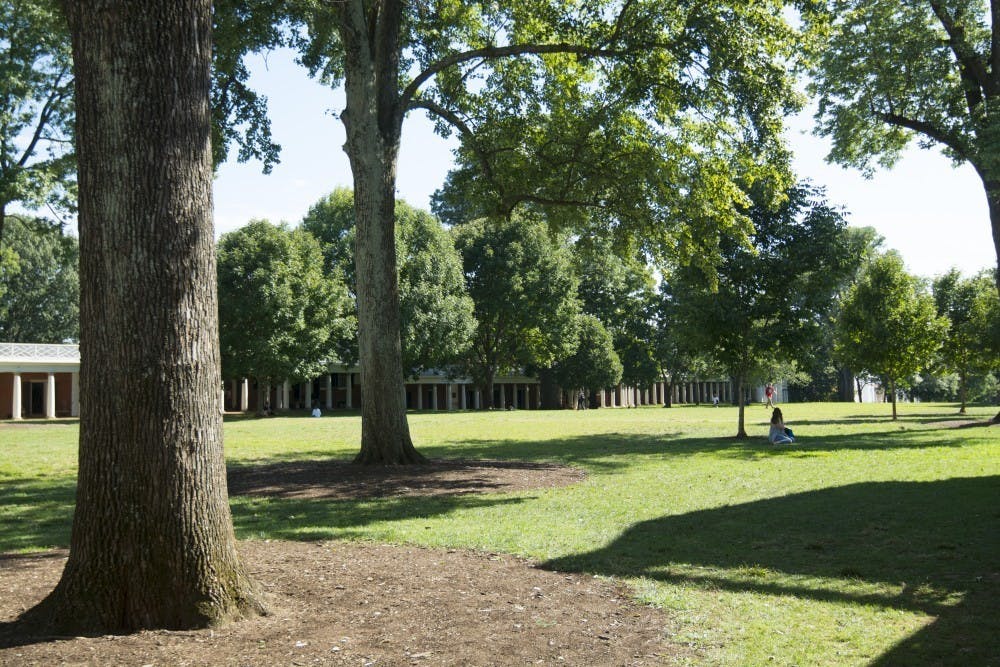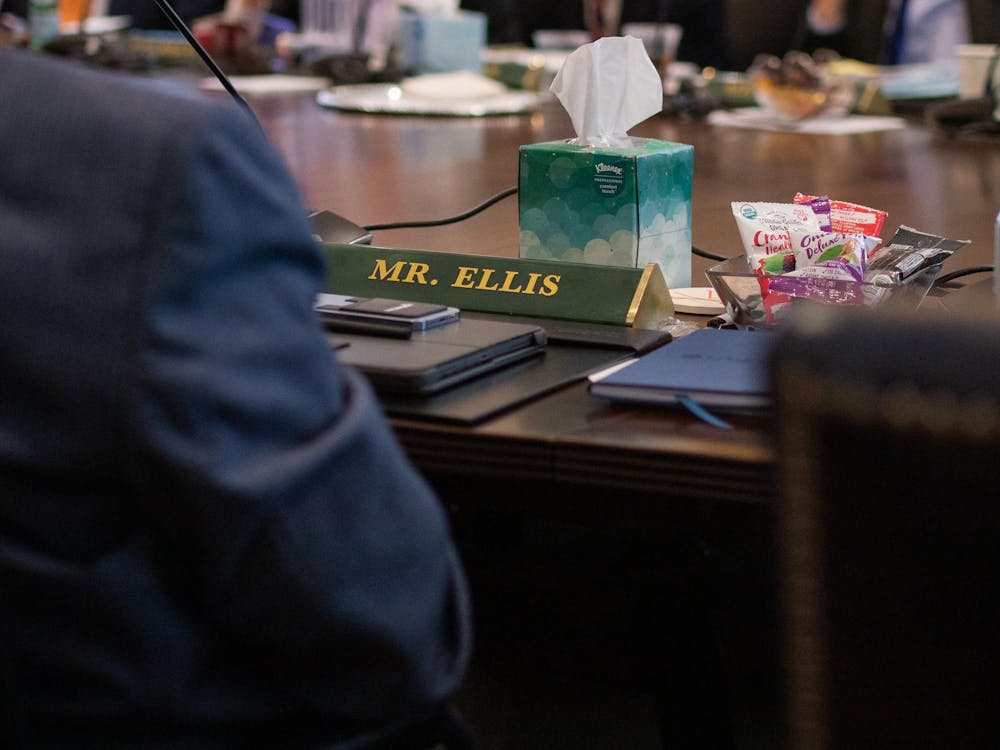The University’s Board of Visitors discussed the College at Wise’s 10-year strategic plan and growth in both enrollment and endowment, approved an academic and health systems audit plan for the 2021-2023 fiscal years and provided updates on the University’s transplant center and COVID-19 response during a series of meetings Thursday.
Committee on the College at Wise
In December 2020, the BOV endorsed the creation of a U.Va. Wise strategic plan now entitled “From 2020 to 2030: A Decade of Renewal and Innovation.” According to Donna P. Henry, chancellor of the College at Wise, the plan enables the College to retain the enduring characteristics of the traditional liberal arts education and reinvent it for relevancy and value in the present and future.
“Through this strategic planning process, the College at Wise has designed an academic experience featuring the classical underpinnings of a liberal arts education — e.g. debate, public discourse and enlightenment — one that wrestles with age-old questions as well as current-day dilemmas,” Henry said.
The plan aims to build a curriculum that intentionally develops professional competencies in technology and research while also honing soft skills such as communication and critical thinking. It is comprised of five strategic pillars, including re-designing the College’s curriculum structure and core requirements, aligning programs with institutional missions and student needs, investing in faculty development, retaining and attracting students and updating College systems and policies to ensure efficient management and availability of resources.
In re-designing the curriculum, The College at Wise will adopt a “competency rather than course based approach,” Henry said. This means that the new academic experience will be grounded in foundational courses that equip students with writing, communication and quantitative skills that build the foundation for learning essential research and evidence based reasoning skills.
This intellectual experience will enable students to acquire skills adaptable to the changing world, Henry said.
According to Tricia Folds-Bennett, provost of the College at Wise, this new curriculum will be implemented in the fall of 2022.
During Henry’s presentation at the Board meeting, she also discussed the Wise strategic plan’s proposal for increasing student engagement, enrollment and retention.
Of the 2,021 students currently enrolled at U.Va. Wise, over 50 percent is first generation and many students hail from lower socioeconomic groups, Henry said. More than 80 percent of U.Va. Wise students receive some form of financial aid. Therefore, one challenge that the College faces is student retention — the average retention rate for freshmen is 66 percent.
Through the College at Wise strategic plan, pre-college programs, academic support service, and guidance from academic coaches, mentors and peer mentors will prepare and acclimate students to their time at the College at Wise, Henry said. Advisors will also aid students in mapping out plans for the completion of graduation requirements and participating in experiential learning experiences that help students acquire the professional development necessary for their chosen field.
Additionally, graduates from the College at Wise will have an opportunity to return to the college and learn additional professional development skills as they advance in their careers, Folds-Bennett said.
The Wise strategic plan also includes 10 pivotal projects including the Experiential Learning Hub, Student Success Collaborative — a communication network that works on achieving student success through academic support and retention — and Center for Educational Excellence and Innovation. The Center for Educational Excellence and Innovation will recruit both faculty and staff members, and equip them with tools necessary to implement the College’s projects and programs, Folds-Bennett said.
Over the next year, the administration at Wise hopes to establish program and leadership structures for projects such as the Experiential Learning and High Impact Hub — a connector for programs such as freshman seminar, Center for Career Discovery and Planning and undergraduate research.
According to Henry, the College at Wise will measure the success of its strategic plan by student retention rates, matriculation to graduation time and success after graduation.
As of June 2, U.Va. Wise has 324 freshman deposits for the fall, which is 25 percent over the current five-year average. The College also has 62 transfer student deposits, which is 12 percent higher than the five year average.
Additionally, the U.Va. Deferred Program — which allows Virginians waitlisted at U.Va.’s College of Arts and Sciences to complete one year at Wise before transferring to the University’s main campus in their second year — currently has 76 students enrolled and 420 students on the interested list, Henry said. Generally, the program enrolls 23-25 students per academic year.
“Those are all important trends and good trends that we’re seeing moving forward,” Henry said.
The BOV meeting also discussed progress in the College at Wise’s “Honor the Future” campaign, whose funds will go towards scholarships, professor endowments, athletic facilities and experiential learning opportunities. Since the campaign launched October 2019, the College at Wise has raised $63 million of its $100 million goal.
Additionally, from January 2013 to June 2021, the College at Wise’s endowment has grown from $45 million to $152 million.
Audit, Compliance and Risk Committee
The BOV met Thursday from 2:15 to 3 p.m. to approve an internal audit plan for the 2021-2023 fiscal years. The audit will evaluate processes important to achieving the University’s mission of higher learning, discovery, innovation, student development, world-class patient care and determine whether they pose a risk to the University’s objectives.
According to Chief Audit Executive Carolyn Saint, the audit plan includes both academic and U.Va. Health-specific audits as well as pan-University audits relevant to both the academic and health systems.
In the academic division, the two-year audit plan seeks to audit processes such as undergraduate student advising, institutional data and academic records and policies.
One of the audit plan’s most significant commitments of resources will go towards the implementation of Workday Financials, a cloud-based financial management system. In place of the previous system, Oracle, the University’s internal audit department will work in collaboration with outside experts from JIH Consulting to evaluate risks to the implementation of this $75 million project.
For U.Va. Health, the first year of the audit plan includes ordinary but fundamental audits such as purchase card, timekeeping and payroll controls. In the second year, more healthcare specific topics, such as telehealth coding and billing compliance and discharge planning, will be included.
The audit plan also contains pan-University audits on topics such as cybersecurity — specifically, the assessment and recommendations for ransomware and malware readiness and response.
Health Systems Board Meeting
Dr. Craig Kent, executive vice president for Health Affairs, gave opening remarks and introduced new senior leadership. On July 1, Tracy Downs and John Bennett will assume their new roles as chief diversity and community engagement officer and chief ambulatory operations officer of U.Va. Health, respectively. Jennifer Siciliano will serve as the new chief external affairs officer, effective Aug. 11.
Kent expressed his excitement and optimism for the future as the health system moves forward in a time when COVID-19 cases are on the decline — the seven-day average of new cases in the City of Charlottesville was zero as of Friday.
“We’re beginning to think about strategic planning, we’re beginning to think about the future and we’re really excited about that,” Kent said. “It’s gonna be a great year coming up. I think all of us feel like we might have missed a year in terms of moving forward, but it was a good year. We helped our community, we helped our region, we helped the nation during that year with all the really wonderful people in U.Va. Health.”
Since the pandemic began, U.Va. Health has faced considerable financial strain in addition to a heavily overworked staff. In April 2020, the health system furloughed employees and reduced salaries after the financial impact of the pandemic produced a deficit of $85 million per month. In November 2020, U.Va. Health employees began to unionize against top-down management, inadequate staffing and subpar wages. Less than two months later, the hospital began requiring registered nurses, certified nursing assistants and patient care technicians to pick up extra shifts in response to a surge in COVID-19 hospitalizations.
Dr. Reid Adams, chair of surgery at U.Va. Health, introduced two resolutions for approval by the Board. The first was a resolution to combine the clinical staff of the main University hospital and the transitional care hospital, creating a unified clinical staff to improve operational efficiency. The second resolution concerned reaffirming the medical center as a Level I Trauma Center, a status that was first approved by the Board in November 2014. Both resolutions passed without opposition.
Dr. José Oberholzer, director of U.Va. Health’s Charles O. Strickler Transplant Center, then gave a presentation providing updates on the transplant center, which is the only comprehensive, solid organ transplant center in Virginia. The transplant center has performed over 500 heart transplants, almost 600 lung transplants, almost 2,000 liver transplants, almost 3,000 kidney transplants and 280 pancreas transplants since it opened in 1967.
According to Oberholzer, the pandemic particularly impacted transplant patients as they are under immunosuppression, meaning that their body does not have a very strong immune response to fight off potential viruses. While many other hospitals stopped transplants altogether, U.Va. Health continued with performing the procedures, though it decided to reduce the number of transplants to maintain patient safety, resulting in a small decline in cases.
“We saw a decline, yes we did, but not quite as dramatic as the rest of the country has seen,” Oberholzer said. “The good news is that we are back on a growth trajectory. We are again to exceed over 300 transplants by the end of this year.”
In response to a question by faculty consultant A. Bobby Chhabra about the impact of COVID-19 on transplants, Oberholzer acknowledged that more people will have end-stage lung disease and require transplants because COVID-19 can cause long-term lung complications. However, he hopes that the pandemic will not have a lasting impact on patients because scientists have now gained a deeper understanding of COVID-19 and how to navigate its effects.







